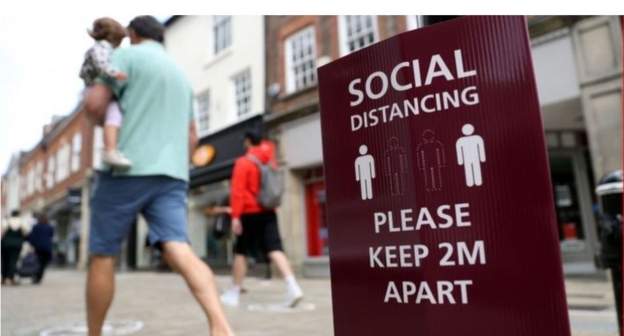 THE North of Ireland must “tread carefully” when it comes to easing the coronavirus lockdown and some restrictions may remain in place long term, Robin Swann has said.
THE North of Ireland must “tread carefully” when it comes to easing the coronavirus lockdown and some restrictions may remain in place long term, Robin Swann has said.
The Health Minister said that despite progress with vaccinations, serious uncertainties remain about the future.
His comments came amid warnings from health officials that some restrictions could remain in place until next year.
“If we want a better spring and summer, we need to make the utmost effort now,” added Mr Swann.
The North of Ireland re-entered lockdown on Boxing Day, December 26, as hospitals faced severe pressures in managing a third wave of the virus.
The Executive will review the restrictions next week but the measures are currently in place until March 5.
Four more Coronavirus-related deaths have been reported in here in the past 24 hours, say the Department of Health.
A total number of 1,957 people have now died in NI after testing positive for the virus.
A further 336 positive coronavirus cases were also recorded on Wednesday in the department’s latest figures.
None of the new deaths were reported in the Derry City and Strabane District Council area with its death toll remaining at 127.
There were a further 14 positive cases reported since Monday.
There are 554 people being treated in hospital for the virus in Northern Ireland, 61 are in intensive care units (ICU).
Speaking at the weekly health press conference at Stormont on Tuesday, the minister said he wanted to offer people hope but had to “stress the need for caution”.
Wearing face coverings in public may well become the “new normal” even if lockdown measures are eased, added Mr Swann.
“If we continue with the progress we are making, we can consider a careful, managed, easing of some measures – but only when and if the timing is right,” he warned.
The minister set out three “principles” he said would guide the executive’s response to easing restrictions in the coming months.
They are:
Infection rates falling further and pressures in hospitals being “significantly eased”
Being aware of the risks and uncertainties with new variants of the virus
Understanding the toll the pandemic is having on the economy and society
Mr Swann said he wanted to “aggressively stamp down” infection rates, in order to allow breathing space for all aspects of society to recover.
On new variants of the virus, he said they represented a considerable unknown and that ministers could not prematurely end lockdown and risk “falling into another in a small number of weeks”.
It is believed at least 50% of current Covid-19 cases in NI could be related to the variant that was detected in Kent before Christmas.
It is thought to be about 50-70% more infectious than the original Covid-19 strain that emerged early last year.
He pointed to upcoming St Patrick’s Day and Easter holidays and said history could not repeat itself by allowing
increased social mixing to cause a large spike in cases.
Mr Swann said he longed for the day when all families in Northern Ireland could enjoy freedoms they previously took for granted, but stressed “we are not there yet”.
As of Tuesday, 361,430 doses of the vaccine had been administered in Northern Ireland.

Fresh lockdown in Noerth for a further six weeks
Chief Medical Officer Dr Michael McBride said no-one was advocating for a full lockdown to continue until 2022.
“We can do better than that, and we must do better than that,” he told the press conference.
But he warned that if restrictions were relaxed too early, cases would grow and that would lead to further pressures on the health service and another rise in deaths.
“We need to allow time between relaxing one thing, assessing the impact of that before then relaxing another,” said Dr McBride.
He added that “small, careful baby steps” were required, but insisted “there will be a time after Covid”.
Both Dr McBride and Mr Swann appealed to the public to continue following the current public health advice, insisting it would remain an important part of the strategy to manage Covid-19.
Tags:




